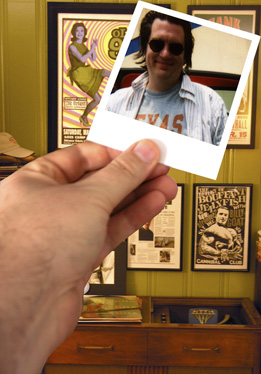
My friend Phil and I have this conversation all the time. Phil is an old school photographer, back from the days – and I say this without irony – when photographers used film. He laments how stock archives and digital photography have destroyed his craft.
As someone who appreciates photography as art, I’m inclined to agree with him. However, as an avid weekend photographer, I love my digital camera. And as a graphic designer, I love sites like iStockphoto that offer me low-cost stock photos a few clicks away. There’s the conundrum, I love the sausage but I hate how it’s made.
In this morning’s New York Times, this article shed a little bit of light on how we got here and where we are going with photography:
In some sense, the iconic photograph of Rosa Parks recreating her quiet act of rebellion on a bus in Montgomery, Ala., belongs to every American. But as a practical matter, it belongs to Bill Gates.
Anyone wanting to use that image in a book or on a Web site must first license it from Corbis, a corporation founded and owned by Mr. Gates, who is better known for starting Microsoft. The photo is among the 11 million prints and negatives in the legendary Bettmann archive, which Corbis bought in 1995.
Since that first purchase, Corbis has spent tens of millions of dollars acquiring image collections and other companies, hired more than 1,000 people and set up two dozen offices worldwide. Although Corbis says it brings in some $250 million a year in sales, it has yet to turn a profit.
Not making money? How is that possible?
What Corbis did not foresee was the rise of so-called microstock agencies like Fotolia and iStockPhoto. These sites take advantage of the phenomenon known as crowdsourcing, or turning to the online masses for free or low-cost submissions.
Turns out that Bill Gates can’t make money because of me, my digital camera and voracious appetite for $2 stock photos. And if Bill Gates can’t make money at it, does that mean professional photographers and their craft are doomed?
Probably not. Just like newspapers, they will need to find a new business model, undoubtedly online. But will the fact that anyone can be a photographer or a writer or a publisher and dump it all on a blog destroy the art and expertise that go into these endeavors?
Certainly something will be lost, but this is just evolution: adapt or perish. There will be those who figure it out and thrive. And with any luck, some of those will include people who wouldn’t have found their way without all of this democratizing technology. Crowdsourcing won't kill photography (and blogging won't kill newspapers or other "old" media), but it will make surviving in the future much more challenging.
And don’t look so smug all you graphic designers – your work is next.































